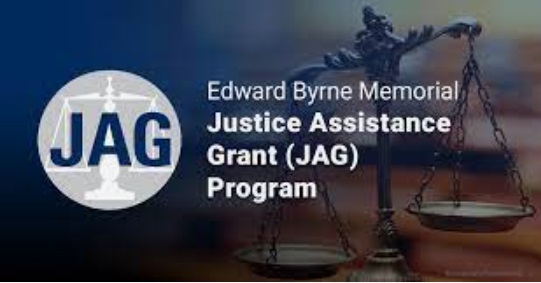
SPOKANE, WA – The Washington State Department of Commerce has been awarded a $5.2 million grant to implement the Byrne State Crisis Implementation Program. In addition, a $1.6 million grant was awarded to the Idaho State Police to fund state crisis intervention court proceedings and/or related gun violence reduction programs/initiatives that could include specialized court-based programs such as drug, mental health, and veterans treatment courts, including those that specifically accept clients with firearms violations; behavioral health deflection for those that are at risk to themselves or others; and funding for law enforcement agencies to safely secure, store, track, and return relinquished guns or for officers to attend specialized training.
“Idaho does not have laws related to extreme risk protection orders (ERPO) nor any plans to enact ERPO programs. Consequently, Byrne SCIP funding will not be used for the creation and/or implementation of any ERPO programs. It is anticipated that Idaho Byrne SCIP subgrantees will be from various state agencies, units of local government meeting the local pass-through requirements, and non-profit organizations from around the state who serve communities in both rural towns and urban cities across Idaho,” according to the Bureau of Justice Assistance.
U.S. Attorney Vanessa R. Waldref from the Eastern District of Washington says the Department of Justice grant will support state, local, and tribal efforts across the state to improve the implementation and enforcement of protection order laws and practices that can keep firearms out of the hands of those who pose a threat to themselves or others. The funding has been authorized by the Bipartisan Safer Communities Act, which President Joe Biden signed into law in June 2022.
“The Bipartisan Safer Communities Act is the most significant piece of federal gun safety legislation in almost three decades and comes as a response to recent mass shootings and to the far more common, but no less tragic, incidents of community gun violence. Including the Byrne State Crisis Intervention Program, the law allocates a total of $1.4 billion to OJP over five years to develop, implement, and sustain meaningful investments in safer communities,” Waldref says in a press release.
“The United States Justice Department is committed to supporting state laws designed to curb gun violence and enforce protection orders,” Waldref says. “The $5.2 million award to Washington State will help save lives, keep children and law enforcement safe, and protect our families and communities from needless acts of gun violence.”
Nationally, the Department of Justice announced over $231 million in state crisis intervention as part of the Bryne State Crisis Intervention Program. For a full list of awards, visit: https://data.ojp.usdoj.gov/stories/s/O-BJA-2023-171458/b5xz-as5z/. These awards are the latest effort from the Department of Justice’s Office of Justice Programs to implement this historic legislation.
The Bureau of Justice Assistance administers the Byrne State Crisis Implementation Program. BJA was created in 1984 to reduce violent crime, create safer communities, and reform aspects of our criminal justice system. The agency works with communities, governments, and nonprofit organizations to reduce crime, recidivism, and unnecessary confinement, as well as promote a safer and more fair criminal justice system. More information about BJA is available at https://bja.ojp.gov/about. Information specific to the Byrne State Crisis Implementation Program is available at https://bja.ojp.gov/program/byrne-scip/overview.
Additional information about grants and funding through the U.S. Department of Justice Office of Justice Programs is available at https://www.ojp.gov/.
The Washington State Department of Commerce will implement the Byrne State Crisis Implementation Program for the state. Project activities will include establishing a Crisis Intervention Advisory Board; adopting an operations plan and budget; and making sub-awards to nonprofit organizations, consultants, researchers, government agencies, and other qualifying entities, building on efforts already underway in the state.
Among other things, sub-awards are expected to fund efforts:
- Institutionalizing best practice protocols;
- Developing and deploying training;
- Building capacity and expertise within and among system partners;
- Strengthening data collection and analysis;
- Developing and distributing current, consistent, accurate, and easy-to-use information;
- Scaling up successful models already being implemented in certain communities.
- Improved implementation and enforcement of the state’s protection order laws through concerted, coordinated, and timely actions taken by courts, law enforcement, victim advocates, prosecutors, and others working in and with the civil and criminal legal systems;
- Improved awareness and understanding of the laws and fewer barriers to access through enhanced use of accurate, consistent, and current information for those seeking protection, filing a petition, helping those in need or at risk, as well as those ordered by the court to temporarily relinquish firearms;
- An increase in the issuance of protection orders and a corresponding reduction of injury, death, and other types of harm to individuals, families, workplaces, schools, and communities due to firearm possession by individuals who present a heightened risk of harm;
- An increased ability to measure effectiveness and identify barriers and opportunities for ongoing systemic improvements in public education, training, practices, approaches, and outcomes.

